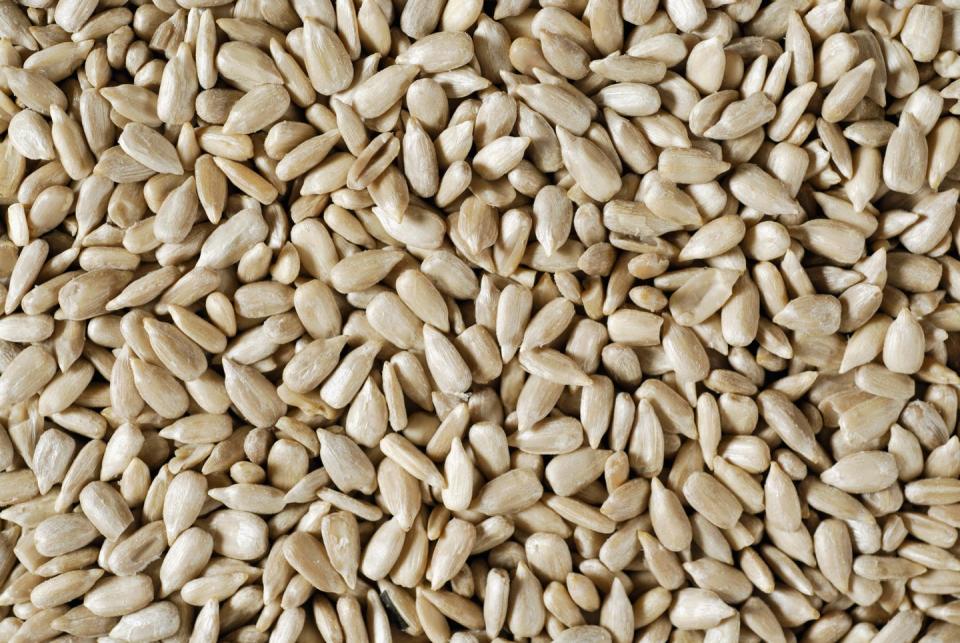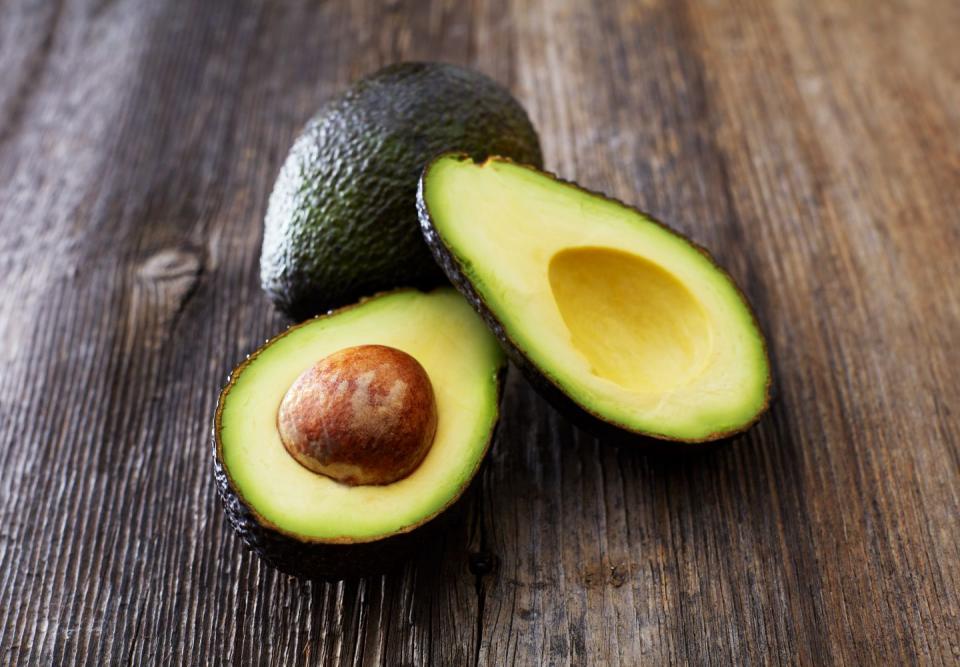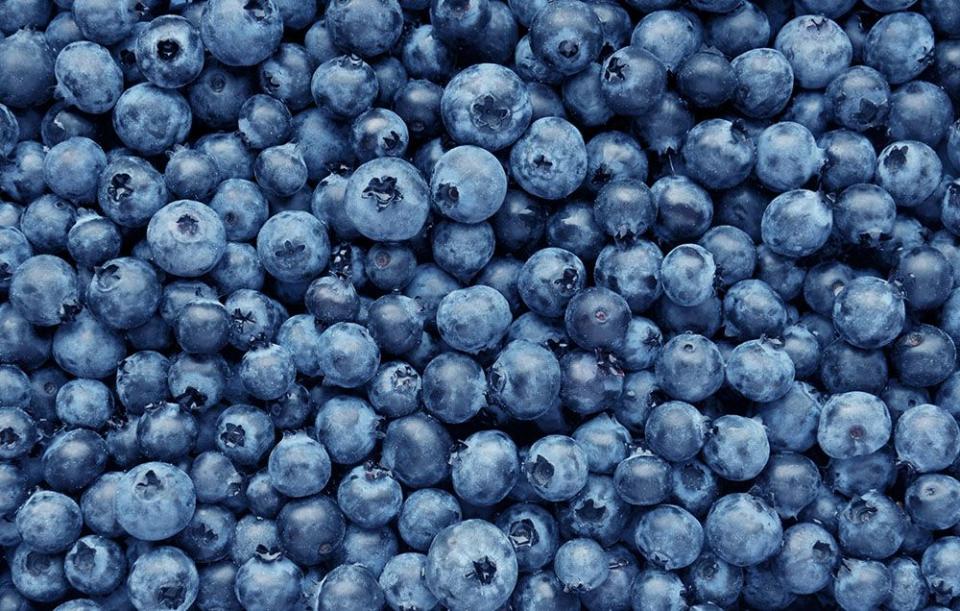Struggling to focus? Feed your brain cells with one of these surprising brain foods

While we all know that the food we eat affects how we look (and that research around healthy eating has mainly focused on the link between diet and weight and disease), did you know that what we eat also affects our brain health – and how we operate emotionally and mentally?
A recent study from Newcastle University showed that sticking to a Mediterranean diet – and eating plenty of fruit, vegetables, legumes, fish and olive oil, and very little red and processed meat – could significantly cut your dementia risk. While multiple studies have found a link between a diet high in refined sugars and impaired brain function — and even a worsening of symptoms of mood disorders, such as depression.
Put simply, what you eat directly affects the structure and function of your brain and can impact everything from your ability to concentrate to your overall mental well-being. But what does a brain-friendly diet actually look like?
What are ‘brain foods’?
According to Dr Uma Naidoo, a Harvard-trained nutritional psychiatrist and professional chef – and author of This is Your Brain on Food – what we eat directly impacts our emotions because our gut and brain are connected.
Brain foods are never ‘one food,’ she says. ‘B-vitamin-rich foods, omega-3 fatty acid-rich foods and antioxidants are three groups that are very important for brain health.’
Eating a brain food diet includes eating healthy whole foods while focusing on less ultra-processed packaged foods and fast foods, she adds. ‘The whole foods should be rich in colourful fibre-rich plant foods (salad greens, vegetables, and berries), clean proteins (grass-fed beef, beans, legumes, organic tofu), healthy fats (omega-3s, olive oil, avocado) and a small portion of healthy whole grains (quinoa). By eating in this way, you are working to fend off metabolic problems which are closely linked with poor brain health. You are also adding in fibre which nurtures the gut microbiome leading to a healthy gut, which leads to a happy brain.’
Wondering which brain foods you should add to your shopping basket the next time you head to the supermarket? Keep reading to check out all the foods linked to better brain health...
11 brain foods to add to your diet
Nuts
Easy to eat on the go, work wonders on top of a salad, and can perform as the perfect filler on your charcuterie board; nuts really are the ultimate all-rounder.
And better yet, evidence suggests consuming a variety of nuts can have a significant benefit on the brain and cognition.
The ‘top nut’, according to Northwestern Medicine, is the walnut which is packed with short-chain omega-3 fatty acids called ALA. One of the omega-3 fats that helps to reduce inflammation and stress, as well as ward off cognitive decline with age. Walnuts also contain an incredibly high number of polyphenols, a type of antioxidant compound found in plants that helps the brain resist the damaging effects of oxidative stress.

Seeds
Seeds are rich in omega-3 fatty acids, which help to protect your brain cells from oxidative damage, but they are also high in fibre, which looks after your gut biome.
Adding chia seeds, flax seeds, sunflower seeds or pumpkin seeds to your baked oats or smoothie bowls can add some extra fibre along with the fatty acids, and folate, to keep your gut, and in turn your brain, happy.

Oily fish
Oily fish such as salmon, tuna, anchovies and mackerel contain omega-3 fatty acids aka a critical element in brain development.
Regularly consuming omega-3 fatty acids has been shown to increase blood flow in the brain – which increases oxygen content, promoting brain healing and brain use. The brain uses three times as much oxygen as the muscles in the body, so increasing its oxygen supply can improve cognitive function.
A study in Plos One found that six months of fish oil supplementation improved working memory performance. This improvement showed that there are pro-cognitive effects which can improve inflammation and cellular signalling.
While UCLA Health published that fish oil also had protective effects on brain volume and structure. They found that individuals who regularly included fish in their diets had fewer markers of Alzheimer’s disease than those who included little to no fish.
Harvard Health has recommended trying to eat fish at least twice a week and you can do this by switching out your usual protein source for fish. For example, instead of tomato pasta topped with grilled chicken, you could top it with grilled salmon instead. And if you’re not a fan of fish you can get fish oil supplements over the counter.

Dark and leafy greens
Dark and leafy greens such as kale, broccoli and spinach are rich in vitamin K, lutein, folate (vitamin B9) and beta carotene according to Harvard Health.
Vitamin K supports the nervous system and can work to regulate calcium which supports cognitive function and memory, since it needs calcium to send messages from the brain to the rest of the body.
Lutein has a role as an antioxidant and anti-inflammatory and supports communication between the eyes and the brain, improving reaction time and is especially beneficial to athletes.
Having low levels or a deficiency of folate has been linked to a sad mood, brain fog and difficulties with memory and concentration according to research from PubMed.
And beta carotene, which provides vitamin A, is an antioxidant and holds a role in maintaining mental health and cognitive performance according to a systematic review. Beta carotene has the best effects though when consumed with other nutrients that have antioxidant properties, so a varied diet is key.

Avocado
The perfect salad filler, great on toast, and a dip for tortillas, this one may even be more versatile than the nuts and seeds. Avocados are filled with those all-important healthy omega fatty acids, and fibre and loaded with vitamin E.
Some studies say that vitamin E has been shown to delay the progression of Alzheimer’s disease in people who have been diagnosed with mild to moderate forms of the disease, according to Mayo Clinic.

Dark chocolate
We’re not asking you to give up your vices completely, just make mindful changes – and dark chocolate is the ultimate compromise.
Dark chocolate contains flavanols which are antioxidants. A study showed that they had the potential to protect neurons from neurotoxins and suppress neuroinflammation to promote memory, learning and cognitive function.

Red wine
Although not a food, this is one treat you can have in moderation without fear of killing your brain cells. We’ve all heard about the benefits polyphenols can have for your heart but what about your brain too?
Polyphenols are antioxidants with anti-inflammatory properties. A study found that although excessive wine consumption increases the risk of dementia due to neurotoxic effects, ‘light to moderate wine consumption seems to reduce the risk of dementia and cognitive decline in an age-dependent manner.’

Eggs
Eggs are a source of choline, a micronutrient associated with reducing inflammation, and higher intakes are linked with better memory and cognitive function. The body also uses choline to create acetylcholine which is a neurotransmitter that helps to regulate mood and memory. Eggs are also an excellent source of Vitamin D – associated with lifting low mood – while Vitamin B12 in eggs also helps support mental health, since deficiencies in the vitamin have been linked to cases of depression.
Our top tip? If you can, buy organic eggs.

Blueberries
Considered to be a superfood, blueberries are packed with antioxidants which counteract oxidative stress – which the brain is susceptible to – and therefore slow down the ageing process on a cellular level. Rich in folate, blueberries reduce inflammation and support healthy serotonin levels. Just add to your breakfast by popping a few on top of your porridge or pancakes, or adding them to a smoothie – NB: you can even use frozen blueberries for convenience since they will have the same effect as fresh.

Tomatoes
Tomatoes are a source of Lycopene, which gives its red colour and is a protective antioxidant. One study reported that where there were lower levels of lycopene in the body, there were higher rates of Alzheimer’s disease. The fruit also contains beta-carotene and vitamin C which protect against cell damage. BBC Good Food recommends having cooked tomatoes with a little olive oil to optimise the body’s absorption of the vitamins.

Wholegrains
Wholegrains, including oats, quinoa, wild rice and rye, can be credited to both improving memory and improving mood. They are rich in B vitamins which reduce inflammation in the brain, helping to preserve memory. Low levels of B12 have been associated with depression and other mood effects, so increasing this intake can help to stabilise mood.

There are many health benefits of vitamin D, but what is the best time to take it in order to maximise the mental and physical benefits?
We asked a health writer to quit caffeine for a week and report on the side effects. Here’s how she got on.
One of the most popular 'reset' trends these days? The 75 Hard challenge. But what can you eat on 75 hard, exactly, and what does it all involve?
There is a scary amount of contradictory health information online. Dr Idrees Mughal (aka Dr Idz) gives us the low down on how to spot health misinformation online.

You Might Also Like


